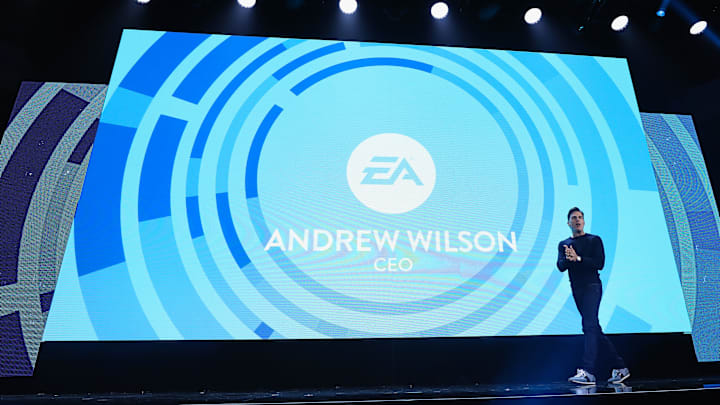The video games industry is in a challenging place. Layoffs continue to threaten nearly every studio and organization. Growth coming out of the COVID-19 pandemic has slowed. Fans push a variety of demands for the games they pay their hard-earned money to play. There are a lot of conflicting foci with the underlying chase of the bottom line always looming. That has led to the conversation about advertising in gaming coming back up, this time with Electronic Arts speaking on the topic during the latest earnings call. It’s a conversation that should get more attention as the hunt for revenue and profits further tightens its grip on the throat of gaming.
EA Chairman & CEO, Andrew Wilson, spoke to the idea of advertisements appearing in upcoming video games.
“To answer your question on advertising broadly, again, I think it’s still early on that front,” Wilson said. “And we have looked over the course of our history to be very thoughtful about advertising in the context of our play experiences. But again, as we think about the many, many billions of hours spent, both playing, creating, watching, and connecting and where much of that engagement happens to be on the bounds of a traditional game experience, our expectation is that advertising has an opportunity to be a meaningful driver of growth for us.”
There’s that term again, growth. Growth is what these organizations want. The video game industry isn’t about putting out masterpieces of digital art, it’s instead about creating growth for the organization that created the game. Whether it’s a small indie group or a major company like EA, all these companies want to see revenue and profit numbers go up. Also known as growth.
Can advertising be a vessel that helps meet those revenue and profit numbers? Perhaps, but fans seem to immediately push back on the idea. Take the example of UFC 4 which featured ads for The Boys television show. Players complained about the placement so much that the ad was eventually pulled. If an ad is disruptive to gameplay, it makes sense for fans to want to see the ad pulled. In-game action shouldn’t suddenly stop for an ad break like commercials on television. But there is a space for them to be implemented in a “tasteful” manner.
For example, Miles Morales’s final costume in Spider-Man 2 was basically an ad for Adidas. While some fans didn’t like it, money was certainly exchanged to feature the popular sneaker brand in the game.
Another example is loading screens. Take Eiyuden Chronicles: Hundred Heroes. That game has black loading screens with an icon of the main character running in the bottom right corner. That could be a valuable landscape for a company interested in advertising to the players that invest nearly 70-100 hours into the game. Even commercials before the start screen. There are ways that advertisements can be incorporated into gaming that do not take away from the in-game experience. This is where innovation in gaming must come into play.
There’s another part of this conversation that must be acknowledged as well. As more and more publishers talk about the exploding budgets, longer timelines, and games still not selling well enough, there must be a way for these organizations to bring in money or that will lead to more layoffs and closures. Tango Gameworks was shut down after releasing a beloved game in Hi-Fi Rush. If in-game advertising would have helped the bottom line and saved those jobs and the studio, wouldn’t that be worth it?
Unfortunately, that means putting faith in the power of capitalism to do the right thing. That doesn’t happen often and it’s hard to say if an increase in revenue through in-game advertising would convince decision-makers to pull back on layoffs and studio closures. But as things continue to worsen in the industry, it shouldn’t be a conversation that is completely off the table.
